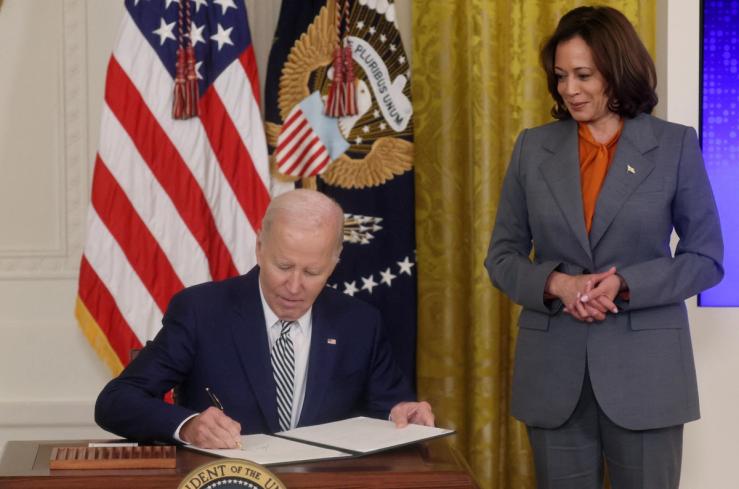
Semafor Signals
What Biden’s AI executive order means for data privacy

The News
U.S. President Joe Biden signed a wide-reaching executive order Monday aimed at both managing the risks of artificial intelligence and harnessing the power of the swiftly evolving technology.
Among other directives, companies will have to submit the test results of their AI models to the government before they’re made public, and officials will develop standards for authenticating and watermarking photos and videos generated by AI.
One of the most in-depth sections of the order covers the issue of privacy, directing federal agencies to explore ways to keep AI from putting people’s data at risk.
SIGNALS
Privacy advocates have long worried that AI models could put users’ private information at risk if they ingest and later train their models on that data. Biden’s order directs federal agencies to explore ways to fund, use, and strengthen “privacy-preserving research and technologies.” That’s a kind of tech that allows someone to “answer a question using data owned by another individual (or organization), without the asker learning anything more than the answer to the question,” a slate of experts wrote in Foreign Affairs last year. The government is needed to step in to help advance privacy-preserving tech, former White House senior adviser Lindsay Gorman argued, saying, “This is an area where private sector leadership alone is truly not enough.”
Biden is limited in what he alone can do, and the executive order “tries to pull as many levers on as many fronts as it can,” said AI expert Helen Toner. On the privacy front, Biden also called on Congress to pass comprehensive data privacy legislation, which many tech policy experts have also begged for. Despite “dozens of hearings” and proposed bills, “Congress has enacted no federal standard as dickering over state-preemption has stymied any advances,” Roll Call wrote last month. But some lawmakers see privacy legislation as a precursor to the trendier AI regulation efforts.
Some noticed the possibly competitive nature of Biden’s order, declaring it the “most significant actions ever taken by any government to advance the field of AI safety.” It comes ahead of a gathering of world leaders in Britain this week focused on AI safety and organized by Prime Minister Rishi Sunak. (The introduction page for the summit has no mention of AI and data privacy.) The G-7 nations also agreed on an AI “code of conduct” this week, aiming “to promote safe, secure, and trustworthy AI worldwide.”

